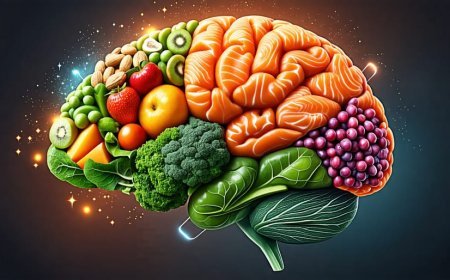How Journaling Can Improve Your Mental Health

Journaling is one of the most accessible and effective tools for improving mental health. Research consistently shows it can reduce anxiety, depression, and stress while boosting mood, self-awareness, and emotional regulation.
The Science Behind Journaling
Writing about emotions helps move them from the emotional brain (amygdala) to the logical brain (prefrontal cortex), reducing their intensity and emotional charge. This process helps you gain perspective on challenging situations.
Expressive writing has been shown to lower cortisol levels, reduce blood pressure, and improve immune function. Studies indicate that just 15-20 minutes of writing can provide stress relief benefits for months.
Journaling improves working memory and helps organize scattered thoughts, leading to better problem-solving abilities and clearer decision-making processes.
Types of Therapeutic Journaling
Gratitude Journaling: Write 3-5 specific things you're grateful for each day. This practice increases happiness and life satisfaction by training your brain to notice positive aspects of life.
Stream of Consciousness Writing: Write continuously for 10-15 minutes without stopping to edit or censor yourself. This technique helps clear mental clutter and access subconscious thoughts.
Emotion Tracking Journal: Record your daily emotions and their triggers. This builds emotional intelligence and helps you identify patterns in your mood and behavior.
Getting Started with Journaling
Choose any notebook or digital app that feels comfortable and accessible to you. The medium matters less than consistency. Set aside 10-15 minutes daily, preferably at the same time each day to build the habit.
Don't worry about grammar, spelling, or writing quality – focus on honest, authentic expression. Write about whatever comes to mind – there's no wrong way to journal.
Helpful Journaling Prompts
What am I feeling right now and what might be causing these emotions? What went well today and what challenged me? How did I handle difficult situations? What do I need more of in my life right now?
What patterns do I notice in my thoughts and behaviors? What would I tell a good friend going through my current situation?
Remember, journaling is a practice that develops over time. Be patient and compassionate with yourself as you develop this powerful mental health tool.
What's Your Reaction?
 Like
0
Like
0
 Dislike
0
Dislike
0
 Love
0
Love
0
 Funny
0
Funny
0
 Angry
0
Angry
0
 Sad
0
Sad
0
 Wow
0
Wow
0







































